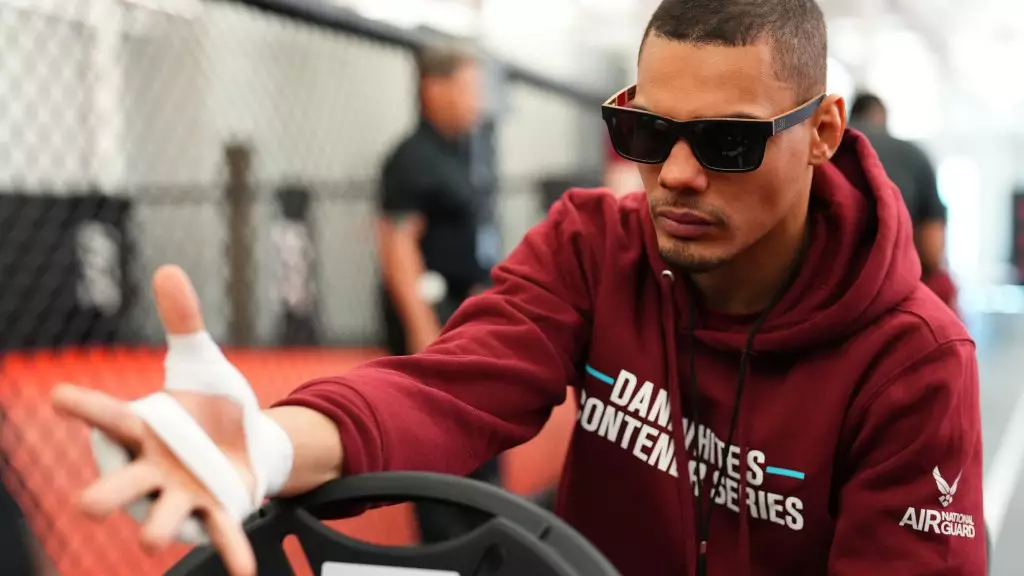The combat sports landscape is often fraught with challenges, particularly when it comes to athlete conduct and adherence to regulatory standards. The Nevada Athletic Commission (NAC) recently made headlines by announcing multiple disciplinary actions against fighters from the latest season of Dana White’s Contender Series. This action not only highlights the continuous struggle against performance-enhancing drugs (PEDs) in the sport but also raises questions regarding mental health and the pressures of competition.
Among the fighters facing suspension are Francesco Mazzeo and Abdellah Er-Ramy, both of whom suffered defeats in their respective matches. Their infractions involved failed drug tests, revealing the presence of prohibited substances according to the World Anti-Doping Agency (WADA) standards. Mazzeo’s test results indicated GW1516, a compound notorious for its use in enhancing endurance, while Er-Ramy tested positive for drostanolone, a steroid known for muscle-building properties. Both fighters received nine-month suspensions, effectively sidelining them until June 2025, alongside fines for their infractions.
These revelations underscore a critical issue within the realm of mixed martial arts (MMA): the relentless pursuit of competitive advantage, often leading athletes to make poor choices regarding their health and career. Such decisions not only tarnish reputations but can also have lasting repercussions on an athlete’s life and effectiveness in the sport.
Meanwhile, Quemuel Ottoni presents a contrasting situation with his inability to compete due to anxiety issues that led him to withdraw just hours before his fight. His case, which reflects the growing acknowledgment of mental health concerns in sports, illustrates the centrality of psychology in competitive performance. Instead of simple disciplinary actions for drug violations, the NAC has opted for an extension on Ottoni’s suspension, suggesting a desire to engage with him constructively to address his mental well-being.
This decision is particularly notable given that the stigma around mental health in sports has long been an obstacle for athletes seeking help. This situation brings to light the necessity of creating an environment in professional sports that values mental health as equally important as physical fitness.
The NAC’s recent actions carry crucial implications for the future of athlete management in combat sports. They not only serve as a deterrent for those considering the use of performance-enhancing drugs but also emphasize the importance of mental health support for fighters. As MMA continues to grow in popularity, the governing bodies must prioritize athlete well-being alongside competitive integrity.
The rulings by the Nevada Athletic Commission shine a light on the intricate balance between performance, discipline, and recovery in MMA. As they navigate these complex issues, both athletes and regulatory bodies will have to adapt and evolve, ensuring that the sport remains fair, safe, and sincere in its pursuit of excellence.

